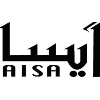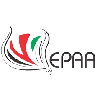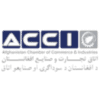Doing business in Western Sahara presents unique challenges and opportunities due to the region’s complex political status, cultural dynamics, and legal systems. As a disputed territory, Western Sahara is largely administered by Morocco, which applies Moroccan laws and regulations in the areas under its control. Understanding the social, cultural, political, and economic environment is essential for businesses looking to operate in this region. Below is an overview of the key factors to consider before entering the Western Sahara market.
1. Political and Legal Environment
Political Status
Western Sahara is a disputed territory that has been the subject of a long-standing conflict between Morocco and the Polisario Front, which seeks independence for the region. While Morocco controls most of Western Sahara, particularly the coastal cities of Laayoune and Dakhla, the United Nations continues to classify the region as a non-self-governing territory.
This political situation can create uncertainty for businesses, especially regarding international relations and potential future changes in governance. However, Morocco has implemented a de facto administration in the region, and Moroccan laws, including those governing business, taxation, and commercial disputes, are applied in Moroccan-controlled areas of Western Sahara.
Rule of Law
The rule of law in Western Sahara is based on the Moroccan legal framework, which provides a relatively stable and predictable environment for businesses. The Moroccan government has invested heavily in infrastructure and development in the region, particularly in cities like Laayoune and Dakhla, which are becoming hubs for trade and tourism.
- Judicial System: Businesses operating in Western Sahara will interact with Moroccan courts, including Commercial Courts for dispute resolution. The legal system is based on civil law, and the judiciary is generally viewed as functioning, though businesses should be aware of the potential influence of political factors.
- Security: The region is generally stable, particularly in areas under Moroccan control, though businesses should stay informed about any political developments that could affect operations.
2. Social and Cultural Factors
Cultural Sensitivity
Western Sahara’s population is predominantly Saharan Arab and Berber, with deep-rooted tribal traditions and Islamic cultural practices. Understanding the local culture is essential for building successful business relationships in the region. This includes adhering to Islamic customs, such as observing public holidays like Eid al-Fitr and Eid al-Adha, and respecting traditional values.
- Language: The official language is Arabic, and Hassaniya Arabic (a local dialect) is widely spoken. French is also commonly used in business and government contexts due to Morocco’s colonial history. It is advisable for foreign businesses to have documents translated into Arabic or French.
- Business Etiquette: Personal relationships and trust are highly valued in business dealings. Taking the time to build rapport with local partners and demonstrating respect for local customs can facilitate smoother business operations.
Labor Force
The labor force in Western Sahara is relatively small but growing, with the Moroccan government encouraging investment and job creation in the region. There is a mix of local Sahrawi workers and Moroccan settlers, and understanding the local labor dynamics is important for businesses.
- Labor Laws: The labor laws in Western Sahara follow Moroccan labor regulations, which provide protections for workers, including minimum wage requirements, working hours, and social security benefits. Employers must register with the National Social Security Fund (CNSS) and ensure compliance with Moroccan labor standards.
Corporate Social Responsibility (CSR)
Given the political sensitivity of the region, businesses may face international scrutiny regarding their operations in Western Sahara. Companies are encouraged to adopt corporate social responsibility (CSR) policies that benefit local communities, such as investing in education, healthcare, or infrastructure. Demonstrating a commitment to improving the local economy and social conditions can enhance a business’s reputation both locally and internationally.
3. Economic and Foreign Exchange Environment
Currency and Foreign Exchange
Western Sahara uses the Moroccan dirham (MAD) as its official currency, which is regulated by the Moroccan central bank, Bank Al-Maghrib. The dirham is a relatively stable currency, and while it is not fully convertible on international markets, it can be exchanged for major currencies such as the US dollar (USD) or euro (EUR) within Morocco.
- Currency Controls: Morocco has foreign exchange controls in place, meaning that businesses must comply with regulations regarding the conversion of dirhams into foreign currencies and the repatriation of profits. These regulations are overseen by Morocco’s Exchange Office.
- Banking: Several Moroccan and international banks operate in the region, providing services such as trade financing, foreign exchange, and corporate banking. It is advisable for businesses to establish relationships with local banks to facilitate smooth financial operations.
Investment Incentives
The Moroccan government offers various incentives to attract investment to Western Sahara, particularly in sectors such as renewable energy, fishing, tourism, and phosphate mining. These incentives include tax breaks, subsidies, and reduced import duties on equipment.
- Free Trade Zones: There are free trade zones in Laayoune and Dakhla, offering businesses tax exemptions and streamlined customs procedures. These zones are designed to attract foreign investment and boost exports from the region.
4. Infrastructure and Logistics
Transport Infrastructure
Morocco has heavily invested in the infrastructure of Western Sahara, developing modern roads, airports, and ports to enhance connectivity. Key infrastructure developments include:
- Ports: The port of Dakhla is a strategic hub for trade with West Africa and Europe. It supports fishing exports and other industries and is expected to expand further in the coming years.
- Airports: Laayoune Hassan I Airport and Dakhla Airport offer regular flights to other parts of Morocco and some international destinations.
- Roads: The region’s road network connects Western Sahara to major Moroccan cities like Agadir and Casablanca, facilitating the movement of goods and people.
Energy and Utilities
The Moroccan government is also promoting renewable energy in Western Sahara, particularly solar and wind energy projects. Businesses may benefit from lower energy costs and incentives for using renewable energy sources.
- Water Supply: Water is a scarce resource in the region, and businesses involved in industries that require large amounts of water (such as manufacturing or agriculture) need to consider the availability and cost of water supplies.
5. International Relations and Trade
Trade Relations and Sanctions
Western Sahara’s political status means that businesses must carefully consider international trade regulations. Some countries and organizations, such as the European Union, have special agreements with Morocco that include Western Sahara, while others may impose restrictions or sanctions on goods originating from the region due to the ongoing dispute.
- EU-Morocco Trade Agreements: The European Court of Justice (ECJ) has ruled that trade agreements between the EU and Morocco do not automatically apply to Western Sahara unless there is explicit consent from the Sahrawi people. This has created some legal uncertainties for businesses trading with the EU.
- United Nations: The UN continues to advocate for a referendum on the status of Western Sahara, which could impact business operations in the future. Businesses should stay informed about any developments in the UN-mediated peace process.
6. Foreign Direct Investment (FDI) and International Business
Western Sahara is increasingly seen as a frontier market for foreign direct investment (FDI). Morocco has positioned the region as a gateway to Africa and has developed special economic zones to attract FDI. However, businesses should be aware of the political sensitivities and ensure that their investments comply with both Moroccan law and international guidelines.
- Investment Risks: While the region offers opportunities, particularly in the energy and natural resources sectors, businesses need to assess the geopolitical risks associated with operating in a disputed territory. International businesses might face reputational risks depending on their home country’s stance on the Western Sahara issue.
Relevant URLs and Key Contacts
- Moroccan Investment and Export Development Agency (AMDIE)
Website: https://www.amdie.gov.ma
- Moroccan Ministry of Industry and Trade
Website: https://www.mcinet.gov.ma
- Moroccan Ministry of Energy, Mines, and Environment
Website: https://www.mem.gov.ma
- Laayoune Municipal Office
Website: https://www.laayoune.ma
- Dakhla Municipal Office
Website: https://www.dakhla.ma
- Bank Al-Maghrib (Central Bank of Morocco)
Website: https://www.bkam.ma
- Morocco’s Exchange Office
Website: https://www.oc.gov.ma
- National Social Security Fund (CNSS)
Website: https://www.cnss.ma
- United Nations Mission for the Referendum in Western Sahara (MINURSO)
Website: https://minurso.unmissions.org




 Tel: +93 0202100428
Tel: +93 0202100428